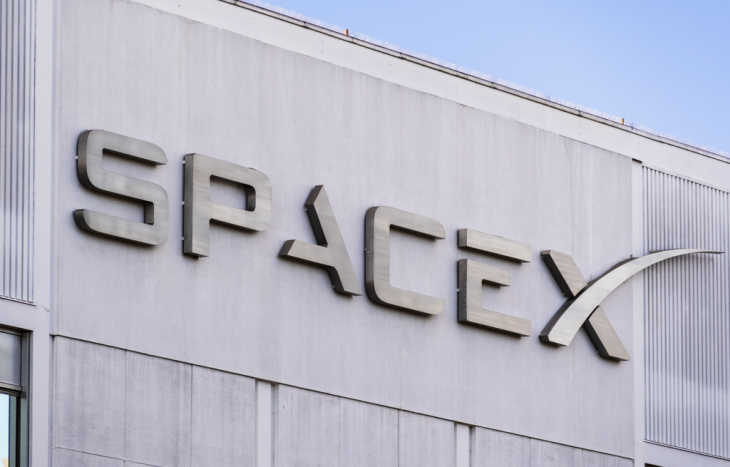Remember back in 2022, when it seemed like any stock related to “the metaverse” would soar?
Or, when management teams would vaguely mention NFTs on earnings calls and watch their stock go to the moon?
Well, the past quarter has felt similar, except that “artificial intelligence” is the new phrase of choice. At the center of this industry-wide bull market is one of the best-performing stocks of 2023: Nvidia (Nasdaq: NVDA). Over the past year, NVDA stock has soared nearly 200% (as of 2/12/2024) including a 50% run so far through 2024.
Thanks to Nvidia’s foundation in the AI space, its future looks immensely bright. But, the company’s market capitalization has also surged to an incredible $1.8 trillion (on revenue of just $18.12 billion).
For reference, Meta Platforms has a smaller market cap of $1.22 trillion, despite making nearly twice as much money as Nvidia did last quarter ($34 billion). So, is Nvidia overvalued? Let’s examine.
Spoiler Alert: Nvidia made my list of The Best 6 Stocks to Hold for the Next Decade – No FAANG, which I published on my blog: Do Not Save Money.
Disclaimer: This article is for general informational and educational purposes only. It should not be construed as financial advice as the author, Ted Stavetski, is not a financial advisor. He also currently owns a position in $NVDA.
NVDA Stock Forecast
Nvidia designs and sells graphics processing units (GPUs) that are used for gaming, crypto mining, autonomous driving, powering AI applications, and much more. So, even though you might be driving a Tesla, it’s likely a Nvidia GPU that’s doing the heavy lifting behind the Tesla’s screen (I have no idea if Nvidia actually works with Tesla, but you get the idea). It’s safe to say that Nvidia is the “brains” that powers many modern technologies.
The AI leader has reported blowout earnings growth over the past few quarters, mainly thanks to the surge in the use of AI technology:
- Revenue: $18.12 billion (+205% YoY)
- Net Income: $9.24 billion (+1,259% YoY)
- Revenue: $13.51 billion (+101% YoY)
- Net Income: $6.19 billion (+843% YoY)
- April 2023
- Revenue: $7.19 billion (-13% YoY)
- Net Income: $2.04 billion (+26% YoY)
While writing this NVDA stock forecast, I also took a look at their most recent earnings call to get a sense of where the company is at. I discovered a few key takeaways from their call (keep in mind that the below is from their last earnings call in November 2023, so it’s a bit outdated):
- Widespread use: Nvidia’s chips are used to power a startling amount of genAI applications like Adobe, Firefly, ChatGPT, Microsoft 365 Copilot, CoAssist, Now Assist with ServiceNow, and Zoom AI Companion
- Enterprise ramping up: The enterprise wave of AI is just beginning with companies like Adobe, Databricks, Snowflake, and ServiceNow adding AI copilots and assistants to their pipelines.
- China regulations: The U.S. government announced a new set of export control regulations for China and other markets, toward the end of last quarter. These regulations require licenses for the export of a number of Nvidia products, including Hopper and MPIR 100 and 800 series, and several others
But, looking at Nvidia’s past earnings only shows us half the picture. We also have to look at what they have planned for the next few months.
NVDA’s Future Outlook
Nvidia reports earnings on February 21, 2024, which will provide investors with a significant update.
But, Reuters recently reported that Nvidia has established a custom chip unit. This new unit will work with the world’s biggest companies to develop custom chips. So, it could theoretically help companies like Amazon develop custom chips to use in their warehouses, fleets of vehicles, or elsewhere.
In 2023, the same Reuters article estimated that the custom chip market was worth $30 billion. But, it’s expected to explode by $10 billion this year and another $20 billion in 2025. So, by 2026, the market for custom chips could be worth over $60 billion. This would provide a significant tailwind for Nvidia and help it keep pace with investors’ lofty expectations.
NVDA Stock Forecast: Final thoughts
A reporter from the Wall Street Journal had this to say about Nvidia after comparing the company’s growth to an earlier-stage Apple (and I wholeheartedly agree with the sentiment):
“An investor once asked us in 2007, ‘why won’t every person need an iPhone?’ Another recently asked us ‘why won’t every server need to be accelerated?’ The answer to each is a ‘yes,’ which underpins strong growth through 2030,” he added.
In other words, virtually all major companies will have a need for Nvidia’s computing chips over the coming years – just like all consumers needed an iPhone in 2007. This means we could still be at the beginning stage of this company’s dominance – just like Apple in 2007 after releasing the iPhone.
But, does that mean that Nvidia isn’t currently overpriced? Not necessarily. With a current price-to-earnings ratio of 97, investors are pricing in significant growth. If Nvidia’s growth doesn’t keep pace with these expectations then its stock could suffer. But, a P/E of 97 really isn’t that crazy for one of the key players in a rapidly growing market. Especially a market that’s as critical as AI is shaping up to be.
I know that I alluded to NFTs and “the metaverse” in the opening paragraph. But, it’s clear that AI is much different than these other buzzy trends. AI has legitimate, real-world use cases whereas NFTs and the metaverse were mainly just hype. Just ask yourself this: how much time have you spent in the metaverse over the past year? Probably close to none. But, how often have you used ChatGPT or other AI applications? Probably all the time. This is another reason my NVDA stock forecast is bullish.
I think that the future of Nvidia is incredibly bright and it’s definitely worth holding over the coming years. But, its price could also go through highs and lows as investors try to determine how much growth to pull forward. With that said, here’s how you can safely enter a position in Nvidia if you want to.
How to Enter Nvidia (NVDA)
If you want to take a position in Nvidia then you might want to use a strategy called dollar-cost averaging. Dollar-cost averaging is a popular investment strategy that can help you safely enter positions and avoid getting crushed if a stock drops in price right after you buy it. Here’s how it works:
- Let’s say that you are prepared to invest $1,000 into Nvidia but are nervous about the stock tanking after you buy it. Instead of investing all $1,000 at once, you break up your investment over several weeks.
- For example, you could invest $500 today when Nvidia’s price is sitting around $736. Then, you invest another $500 more a month from now. This way, if Nvidia’s price drops to $700 or lower then you still have cash to buy more at a cheaper price. This helps stabilize your average entry price.
- You can spread your investment out as long as you’d (Ex: $250 every month over four months, $100 every month over 10 months, etc). The longer you spread out your investment, the more protected your cash will be.
Dollar-cost averaging is a relatively simple way to protect yourself from market fluctuations. But, the downside is that you can also lose out on potential gains. For example, if Nvidia’s price soars to $800 over the coming month then you’ll wish you had just invested all $1,000 at once, instead of waiting.
I hope that you’ve found this NVDA stock forecast valuable in learning whether or not Nvidia is overvalued. If you’re interested in reading similar articles, be sure to subscribe below to get alerted of new articles from InvestmentU.
A University of Miami grad, Teddy studied marketing and finance while also playing four years on the football team. He’s always had a passion for business and used his experience from a few personal projects to become one of the top-rated business writers on Fiverr.com. When he’s not hammering words onto paper, you can find him hammering notes on the piano or traveling to some place random.














